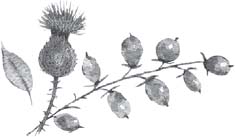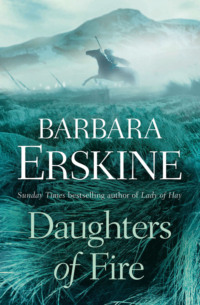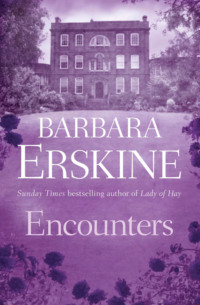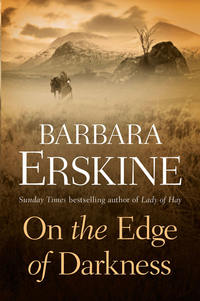
Полная версия
The Ghost Tree: Gripping historical fiction from the Sunday Times Bestseller
There was a name scrawled across the top. Catherine Anne. Ruth frowned. The name was familiar. Then she remembered. Wasn’t that the name of her mother’s grandmother? She turned over the first leaf of the small book and found she was staring at a young girl’s diary. A teenager perhaps? The year was 1905. The beautiful, careful writing began neatly and the entries were much like any new diary, detailing a walk through the January woods, a trip to town to buy new boots, a friend’s birthday party. Ruth turned the pages slowly. The entries became more sporadic and less neat. Then came one that caught her eye. It had been scrawled with such force that the pen had blotted and the writing had been underlined so heavily that the paper was torn.
I had the dream again last night. Or what Papa calls the dream. But it isn’t. I know it isn’t. He’s real!!!
Ruth read the words several times then turned the page. The next entry was five days later.
I spoke to Dunc last night and he has seen him too. He said not to tell Papa. As a vicar, he isn’t allowed to believe in ghosts, but Mama sees them too, Dunc is sure of it. And so did Grandmama.
Dunc was her mother’s great uncle, Duncan, killed on the Somme in 1916. She knew that much. The only relation her father had approved of. So, Catherine Anne was his sister. Ruth found herself biting her lip.
There was a gap of several weeks before the next entry.
He came to me again. I don’t know what he is trying to tell me or who he is. I don’t know what to do. D is still away at school and I have no one to tell. I tried to ask Mama, but she pretended not to understand. She looked horrified when I told her and then Papa came in with his Bible under his arm and Mama went to talk to Cook. Papa looked very stern and made me put my hand on the Bible as if it would protect me. He asked me if I was still having bad dreams and I said yes and he patted my shoulder and said we should pray together.
Ruth could feel small shivers of horror and excitement prickling up and down her spine. She looked up at the window; it was very dark outside. She hadn’t realised how late it was getting. Standing up, she went over and pulled the curtains across. Behind her the diary lay in a pool of lamplight on the table.
He still comes to speak to me though I long since stopped trying to tell anyone. He is kind. He knows the future. He tells me that I will marry a handsome man and he smiled as if he knew such things were of importance to young girls. He tells me to listen to my father, that he is a good man and wise and that he only wants the best for me.
Ruth turned the page.
10 December 1912. My 19th birthday. As soon as he heard that he was to receive a living at last, Joseph asked Papa for my hand and Papa agreed. I’m the happiest person in the world. On our return from honeymoon he will be installed in his new church.
There were only two more entries. The first, dated December, 1913.
How strange it is to read this diary now. The day before my marriage and once again I saw my ghostly visitor. He gave me his blessing and told me I would be happy with Joseph. He told me that we would have four children and said I should give them all his name. I pointed out that he had never told me his name. He said he was Thomas Erskine. I told him that I already bore his name, given to me at my baptism, and he smiled and told me that he knew it! I have a little girl of my own now, and to her I have given the family name of Erskine.
Ruth felt she had stopped breathing. Thomas. Her Thomas. But then she had guessed it might be him. The last entry was written after two blank pages and was dated 1916:
Thomas came to me last night. He was gentle and kind and told me Dunc was dead in France. He told me to prepare my parents for the coming news as they would find it hard to bear. How can I prepare them? He told me my children would thrive and live long lives to comfort me and that my parents would find joy in my children. I am broken-hearted. I believe him though even now Mama has written to say she has received a letter from Dunc, dated some weeks ago. He says he is not allowed to say where he is but that he is well. Yet I know it isn’t true …
The remainder of the notebook was empty.
Ruth sat for a long time staring into space then at last she reached for the rest of the papers that had fallen from the envelope. There was the letter sent by Duncan’s commanding officer to his parents, saying he had been fatally wounded after showing exceptional bravery leading his men; there was another giving the date of his death.
There was a copy of her mother’s family tree. She realised there were tears running down her cheeks as she studied the letters and then the notes her mother had drawn up. Ruth ran her finger from the bottom to the top of the page, pausing when she came to her great-grandmother Catherine Anne, the author of the diary, who was born in 1893. Thomas, Catherine’s great-great-grandfather, who had died in 1823, was there, and there above him were lines and lines of names. Her mother had traced her own line of descent from Thomas down through the daughters of the family, every one, save Lucy, married, she noticed, to a man of the cloth. There were other lines of descent, of course there were, the male lines, the direct lines, but this one was hers and Lucy had added Ruth’s name at the bottom of the page. Ruth stared at it incredulously. She was there, but this was a version of herself she had never seen before. Ruth Catherine Erskine Dunbar.
Her mother had given her his name. Her father couldn’t have known. He would never have countenanced such a thing. It wasn’t on her birth certificate. Or her passport. So, it was her mother’s secret name for her, the name she had wanted her to carry.
She sat back for a moment, overwhelmed. Then it occurred to her that she didn’t need to make a family tree; her mother had done it all for her, but that made her want to know their stories even more. This was her family, the family she had craved since she was a little girl.
She reached for the next envelope. It contained a neat bundle of letters with remnants of broken seals, tied together with ribbon. Had her mother read all these? If she had, it must have been in secret, and when her father locked all Lucy’s treasures away he couldn’t have realised what they were or surely he would have burned them. Perhaps they had never been read again since they were first opened.
She carefully unfolded the first. This was from Thomas himself, addressed to his daughter, Frances; these had been arranged in order of date of writing, beginning in 1821 – addressed from somewhere called Buchan Hill. Her heart hammering with excitement, she glanced through them, aware that she had something inestimably valuable in her hands, something of national importance and, to her, fantastic interest. She picked out one and looked at it closely. The handwriting was firm and there was a small sketch at the end. Ruth screwed up her eyes, trying to see what it was. A cartoon character of some kind. An old man, with glasses and wild hair, a letter in his hand, at his heels a small attentive dog. It was a tiny, mocking, self-portrait. She put down the letter and stared at the wall for several moments, trying to calm herself, her instinct to ring Harriet and tell her what she had found. She resisted the urge. For now, this was her secret. It was too important, too exciting to be hijacked by Hattie.
This was her route into her family and the first thing she must do, she realised, was to sort everything into chronological order, starting with the first letter from the copies, which were Thomas’s letters to various members of his family that had been collected together. Thomas’s own writing was condensed and hard to read and she carried it over to the lamp on the side table. It was like finding a route into his head. His style was direct, if wordy, but that was a character of the age in which he wrote, detailed, seemingly with total recall and with a delightfully dry sense of humour.
Pushing the letters aside two hours later, she realised her head was aching and her eyes sore; she felt extraordinarily tired. Going over to the French doors, she pulled back the curtains and looked out into the dark. It had started to rain. The garden was wet and windy, the trees thrashing noisily as she stepped out onto the terrace and felt the rain on her face. The wind tore at her hair and she took a deep breath, smelling the salt in the wind off the churning Forth and the sweeter scent of mountain grass from the far-off Highlands.
It had always been a source of great pride to her Sussex-born mother that her ancestors came from Scotland, that wild, untamed place of history and myth and legend, a place that had pulled at the heartstrings of generation after generation of her family. And now that she was reading about it through the eyes of her Scottish ancestor, Ruth was beginning to understand. How strange that the wiles of Fate should have snatched him away from Scotland so young, first to Bath and then to the heat and sun of the Caribbean. Perhaps it was from these letters, written from so far away, that they had inherited their sense of nostalgia.
Ruth hugged herself with glee. She was at the beginning of the most glorious adventure. This was the world she had seen in her dreams. She was hooked.
17

The entire crew, officers and men, had been assembled on deck to witness Farquhar’s punishment. The charge was insubordination and persistent recklessness in such a way as to cause the death of another crew member. They had given him the benefit of the doubt, and decided he had not intended murder. The sentence was to be flogged publicly at the gratings, followed by de-rating, which meant he was to be turned forward as an ordinary seaman with loss of status, pay and patronage.
Tom watched, his mouth dry, as Andrew was brought up from below deck. His face as he came past the line of officers was set, with just the smallest glimmer of defiance in his eyes. His gaze lingered for a second as he passed Tom, who felt a sudden shiver of fear. Andrew was unpopular on the ship, but there were many among the junior officers and seamen who would perhaps have preferred to deal with this matter amongst themselves. Here even Mr Harrison and Mr Wyatt were required to be present. The ship must be shown to be united on the side of discipline. Andrew’s irons were removed, he was stripped naked to the waist and secured to the grating that had been lashed to the lee rigging.
As the sound of the cat whistling through the air cut through the hiss of the waves and the thrum of the wind in the rigging, Tom closed his eyes. Farquhar’s back was systematically laid open with the full force of the lashes and his blood began to run down on the deck. Later the duty watch would scrub all signs of it away after he had been sluiced with ice-cold sea water and carried below.
Life resumed much as usual after the flogging, but without Farquhar’s malign presence amongst the midshipmen. Tom saw him only from a distance, though he was aware of his eyes following him and of the strength of Farquhar’s hatred. He tried not to care. He had done the right thing, he was sure of it. He still couldn’t get the picture of Robbie’s face out of his head, the touch of the small boy’s hand, already calloused from his shipboard duties, and the feel of it slowly losing its heat as the chill of death took him away. An innocent, happy child had lost his life after weeks of utter misery and homesickness. That he himself was only a few years older did not occur to him. He was nearly a man compared to Robbie and he felt intensely both his responsibilities and his failure to save the boy’s life.
The Island of Barbados was first sighted on 13 May. Tom felt a jolt of excitement as the lookout made the call and the ship’s company ran to the rail and saw for themselves the shadow on the western horizon and watched as it grew more and more solid in the haze. As the ship anchored, the whole crew were looking longingly towards the shore. The air was heavy with the scent of trees and flowers and earth, carried on the warm wind with the call of the gulls.
To his joy, Tom found the captain had selected him as one of the shore party escorting Mr Harrison and Mr Wyatt to the observatory with their precious timepiece.
It was strange to be on shore again. The beaten track from the port up the hill to the observatory seemed to rock and undulate under his feet and the scents of the island were overpowering after the clean salt and wind on the sea and the stink of the ship. Tom took in every detail. The boy chosen to come as the captain’s other servant was Jamie, and amongst the men rowing the party ashore was, to Tom’s disgust, Andrew Farquhar.
By now they all knew the story of Mr Harrison’s father, John, and his quest to find a clock accurate enough to maintain perfect time at sea. Tom had listened to the conversation of the two men and the officers at the captain’s table and he knew all about John Harrison’s race against his rival for the enormous prize offered for a timepiece that could be used to work out a ship’s exact position by using longitude as well as latitude.
At the observatory, a clergyman named Reverend Maskelyne was waiting for them. Tom didn’t understand the shock and anger with which their passengers greeted the man as he removed his hat in a sweeping bow, but Maskelyne’s smug smile alerted them all to the fact that there was something very wrong. It was only later that Tom heard that Mr Maskelyne too was engaged in the quest for an accurate timepiece and that he, who was to be the judge of Mr Harrison’s instrument, had recently completed the ocean voyage himself and had already claimed the prize. He dithered as he made the observations of the sun and claimed he could not see it for cloud. It was Captain Lindsay who pointed out that there wasn’t a cloud in the sky and insisted the observations be done again and later noted in the ship’s log that the watch had worked to perfection, losing only a few seconds on the month’s voyage from Madeira.
As Tom looked on, his eyes glued to the proceedings, he became aware of someone standing close at his elbow. He glanced up to find Andrew staring at him, a strange expression on his face. Tom moved away slightly and returned to studying the men making their careful notes. Andrew moved with him. ‘That’s right, pretty boy. Make sure you don’t miss anything.’ The whisper in his ear was so quiet it was lost in the sound of the rustling palms and the cry of the birds. ‘Are you planning to add Astronomer Royal to your list of titles?’
Tom did not reply. He was busy memorising everything going on between the astronomers, planning already the letter he was going to write to David.
The ship proceeded to cruise between the Windward Islands and up as far as the coast of Florida where they would anchor off Pensacola. As before, the men maintained the ship, scrubbed the decks, watched for distant sails and the midshipmen went about their duties, interspersed with lessons in seamanship and navigation. Once or twice an American privateer was spotted and they gave chase, but to their intense disappointment the ships were too far away to catch and slipped out of sight beyond the horizon.
There was plenty of time for Tom to write his letters and his own diary and to practise drawing, and now there were more frequent opportunities to put the letters in the mailbag to be taken aboard an eastbound ship or a mail packet, and to collect plants on their trips ashore. He discovered too that the ship’s officers were invited to the great plantation houses for dinners or sometimes for parties. It was on one of those trips, accompanying Sir John as his personal servant, that, having been sternly reminded of the need for discretion as part of the duties of an officer and a gentleman, he met the captain’s woman.
The party was to spend several nights ashore as guests of the plantation owner and Tom gazed as usual in awe at the splendours of yet another great house. He was given a small room adjoining the captain’s and it was before the dinner on the first night when there was a knock at the door. Automatically he went to answer it and stopped abruptly at a sharp command from Sir John. ‘Leave it! You may go, Tom. You may take the rest of the evening off. I shall not need you again tonight.’
He gestured towards the door which led to the adjoining dressing room. As Tom went obediently towards it Sir John himself went to answer the knock. Tom glanced back and was astonished to see one of the slave women at the door and even more astonished to see his captain seize the woman in his arms, swing her off her feet and kiss her. He caught sight of Tom standing open-mouthed, his hand on the doorknob. ‘I said, you can go!’ he shouted.
‘Yes, sir, sorry, sir.’ Tom hastened out of the room.
He sat down on the bed wondering what to do next. He knew some of the officers availed themselves of the services of the women ashore; white women and slaves both seemed equally willing and indeed eager to seek the company of the men from every ship that dropped anchor as they sailed from island to island. That the captain should do the same was not surprising in itself, but the strength of feeling between the two in that short glimpse had been undeniable. The woman was beautiful, he had seen enough of her to notice that, and they obviously knew each other well. With a sigh he levered himself off the low divan and let himself out into the corridor. Suddenly he had hours of free time to himself and he wasn’t sure where to start.

Thomas
Black faces I had seen aplenty when I was back in Scotland and in England. Most, though not all, appeared to be servants. I don’t think I considered the matter of slavery then. I heard my parents talk about it, and my sisters, but not in any way that engaged me, with my own boyish interests paramount. When I reached the Caribbean I was all at once in a world of men and women and children who had been brought there on the slave ships from Africa. The ships themselves were notorious – some lay at anchor in Bridgetown Bay when we first arrived, redolent of the horrors that went on below decks – but on the plantations we visited, in the houses of the owners and administrators who were our hosts, the slaves seemed content with their lot. I did not then understand the concept of freedom or self-determination. Had my lot been any worse than theirs, conscripted as I was, in my own eyes anyway, into the navy and taken away across the ocean against my will? Their quarters were pleasant, their food better by far than any they could have been used to in their native land, or so I supposed, and better than that on many a ship of His Majesty’s navy, their clothing neat and clean. I saw them dancing and I heard them sing. My captain loved one of them, and as I discovered later had a child with her whom he adored. He saw nothing wrong with their situation, so nor did I, then.
And one of them saved my life.
18

Tom could not believe he had been so careless. His sea chest was unlocked, the lid open when he came down off his watch and went automatically to collect his sketchbook. He scanned his belongings. Had anything been stolen? He did not believe it of his shipmates, but occasionally things went missing from someone’s gear, probably lost, or put down in the darkness of the gunroom and kicked by mistake into a corner, but there was always the possibility that one of the seamen could have slipped into the midshipmen’s mess on the rare occasion when there was no one there.
He knelt before the chest. His writing case was there, the box that contained his pens and inks, his clothes, his precious ring-dial, all his carefully packed and sorted belongings. He wrinkled his nose. An unusually foul smell rose from his body linen as he fumbled beneath it for the packet of letters he had received from home, carried on a sloop from Portsmouth. He recoiled then he reached for the glim, the small candle on the mess table, and held it down over the sea chest to see more closely. A bundle of filthy rags had been tucked in amongst his clothes. In the flickering light of the flame he could see the moist stinking brown stains and was in no doubt what this was. He grabbed the corner of the bundle and ran with it up the companionway to the deck where he threw the offending rags over the side. He saw the querying look on the faces of the men on watch up there but none that he could see looked especially concerned or interested. It didn’t matter. He could guess who had done it. He did not immediately guess how truly malicious the act had been.
He found the first sores on his body three weeks later. They looked like raspberries as they swelled and crusted over. Frantic scrubbing did not remove them and at last he confided in Jamie. His friend stared at him, his eyes wide. ‘Tom! How could you be so stupid? Who was it? One of the slaves?’
Tom felt himself blush to his ears. ‘No! No, I haven’t!’ he blustered. ‘I haven’t ever!’ He knew where he had got the infection but he could see his friend did not believe him.
He hid the lesions as best he could. He could go to the gunner’s wife but he was too ashamed, or he could go to the purser who was acting surgeon in the absence of anyone more qualified and was in charge of the medicine chest with its phials of mercury ointment. He knew that if Jamie didn’t believe how he had got the disease then no one else would. Mortified, he scrubbed his body raw with sea water.
It was Andrew who, as Tom walked past, crowingly asked him why he was so obsessed with cleanliness and what he was hiding, and it was Andrew who spread the word that young Tom Erskine had contracted the great pox by sleeping with a slave on a trip ashore. It wasn’t long before he found himself being given an evil-smelling ointment by the gunner’s wife; he was accused of lewd behaviour and informed a fine would be taken from his pay and then he was summoned by Lieutenant Murray.
To his surprise, however, the officer appeared to believe the story poured out by the humiliated and frightened boy and at once guessed the source of Tom’s misery. ‘Seaman Farquhar, I suppose,’ he said heavily. ‘I’ve seen him watching you; he’s had it in for you ever since that affair with the hammock.’
That affair with the hammock! Tom bit his tongue. Did the lieutenant not even remember Robbie’s name?
‘Yes, sir,’ he acquiesced miserably.
Murray arranged for him to go with the next shore party and to Tom’s astonishment escorted him personally to the slave quarters behind the governor’s house. ‘Don’t look so worried, Tom,’ he said. ‘All is not lost. I am taking you to see the best doctor in the Islands.’ He removed his hat as they ducked into one of the small houses behind the governor’s mansion and Tom followed suit.
The huge black woman who greeted them smiled at Tom as the lieutenant explained the circumstances. ‘So, boy, let me see what’s wrong with you,’ she said, her voice soft and lilting as she held out her hand. ‘You go wait outside,’ she added to the lieutenant. ‘This thing is bad enough for the child without having an officer leering down his trousers.’
Tom was almost in tears as he undressed, reluctantly removing his shirt and then his breeches, thankful for the dim light of the small house with its palm-leaf roof. He could hear the wind rustling the leaves as the woman pulled him closer to the daylight in the doorway, holding him in front of her with two firm hands.








